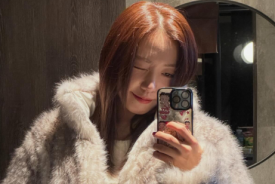The coach of the cheerleading team at University of Regina, Saskatchewan, Canada, has apologised after members were seen wearing cowboys and Red Indians' style stereotypical costumes at a social event Friday.
The Instagram photo shows women dressed as cowboys with chequered shirts and hats; while those dressed as Indians sported, single feathers, headbands, braid hair and dresses that mimicked animal skin including buckskin.
President Vianne Timmons said that the event featured 'culturally inappropriate themes and costumes,' the Province reports.
Timmons said that the team's coaches and members will discuss the issue with the university's Executive Lead on Indigenization and undergo cultural sensitivity training. Upon completion of the discussions, the university will determine whether further disciplinary actions are required.
Kinesiology Dean Harold Reimer said that the university's code of conduct encourages campus community to treat everyone equally regardless of their status or minority group. Students, staff and faculty or obligated to follow the codes to create a comfortable and welcoming environment for everyone to work on.
"I was disturbed by the image and I thought that the team, like all of us who live in Saskatchewan, likely need formal education on the topic," Andrea Sterzuk, an associate professor at the Faculty of Education, told CBC News. "Because treating First Nations and Métis women as a costume objectifies them and that behaviour, I think, contributes to their dehumanization,"
Sterzuk said that the campus incident is a snapshot of a broader problem that exists in the society and should be used as a learning opportunity.
Students were also equally disappointed with the incident. They condemned the photo finding it offensive.
Ryan Deschamps, a doctorate student at the university, was disappointed with the team. "I thought we were kind of past this issue."
Richard Sipley, a computer science student at the university, expressed surprise after seeing the cheer team post such a photo. "I'm shocked that students still think with that mindset."
According to the university website, students of Aboriginal descent constitute approximately 11 percent of the total undergraduate body. The officials said that the school has introduced several initiatives showing their support to aboriginal students, faculty and staff including the expansion of aboriginal student centre and establishment of an aboriginal advisory circle.
© 2026 University Herald, All rights reserved. Do not reproduce without permission.








